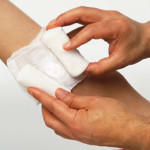How to Prevent Warts from Spreading?
While warts can spread to other areas of the body, it also can infect other people. They are small skin growths caused by virus called HPV (human papilloma virus). This virus itself has more than 100 different types. Since the problem is contagious, you need to prevent it from spreading. Fortunately, there are some options to help ease the symptoms and cope with the problem.
Different types of HPV cause different types of warts. Therefore, one type doesn’t infect or cause other types. For instance, if you common warts, they will not cause genital warts. Common, plantar, and flat warts are contagious, but these types are less likely to spread than genital warts.
 Since the skin problem is caused by virus, it can spread from the direct contact ‘skin to skin’ with someone who has the problem. Even in an individual with the disease, he or she is also recommended to eliminate a direct touch between the warts with his /her hands to prevent them from spreading to other areas of the body.
Since the skin problem is caused by virus, it can spread from the direct contact ‘skin to skin’ with someone who has the problem. Even in an individual with the disease, he or she is also recommended to eliminate a direct touch between the warts with his /her hands to prevent them from spreading to other areas of the body.
Furthermore, indirect contact also can be potential to spread to the problem. For instance, the virus can stay in communal facilities such as swimming pool and public shower areas.
Fortunately, some people are less likely to develop the problem. In other words, each time you get a direct contact with the virus doesn’t mean you will definitely develop the problem.
It’s unlikely that every contact with HPV always cause a wart. However, avoiding a direct contact to the wart-affected skin is the most effective way to avoid the disease spread to others.
In addition, trauma may have a role. In fact, many warts are also often found at pressure points such as bottom of the foot.
For summary, the following are general helpful checklists to prevent the disease from spreading to other areas of the body or to other people:
Avoid getting broken or injured skin!
Remember that warts are more likely to affect /occur in the skin that has been damaged /broken /injured.
Therefore, watch on the health of your fingernails and soles of your feet. Avoid any irritation or physical trauma in these areas!
Avoid also biting your nails /cuticles! This is essential to reduce the chance of spreading the problem from one finger to another.
Avoid any direct contact with the affected skin!
Eliminate the direct contact with any warts on your skin or from others! For instance, never pick at them! If necessary, use an adhesive bandage or athletic tape to cover them in order to discourage picking.
If you need to touch them due to certain reasons, always wash your hands cleanly and carefully afterward!
Watch on the soles of your feet!
Most warts are relatively more difficult to be controlled in moist environment. Therefore, keep your feet clean and dry! Use socks that can help reduce moisture if your feet sweat excessively – or regularly wick the excessive sweat away from the skin!
Plantar warts are one of types of the disease that usually affect the soles feet. When you need to walk on moist, warm surfaces – avoid walking with barefoot! Always use footwear in public areas such as public showers!
What else?
The following are other helpful tips:



